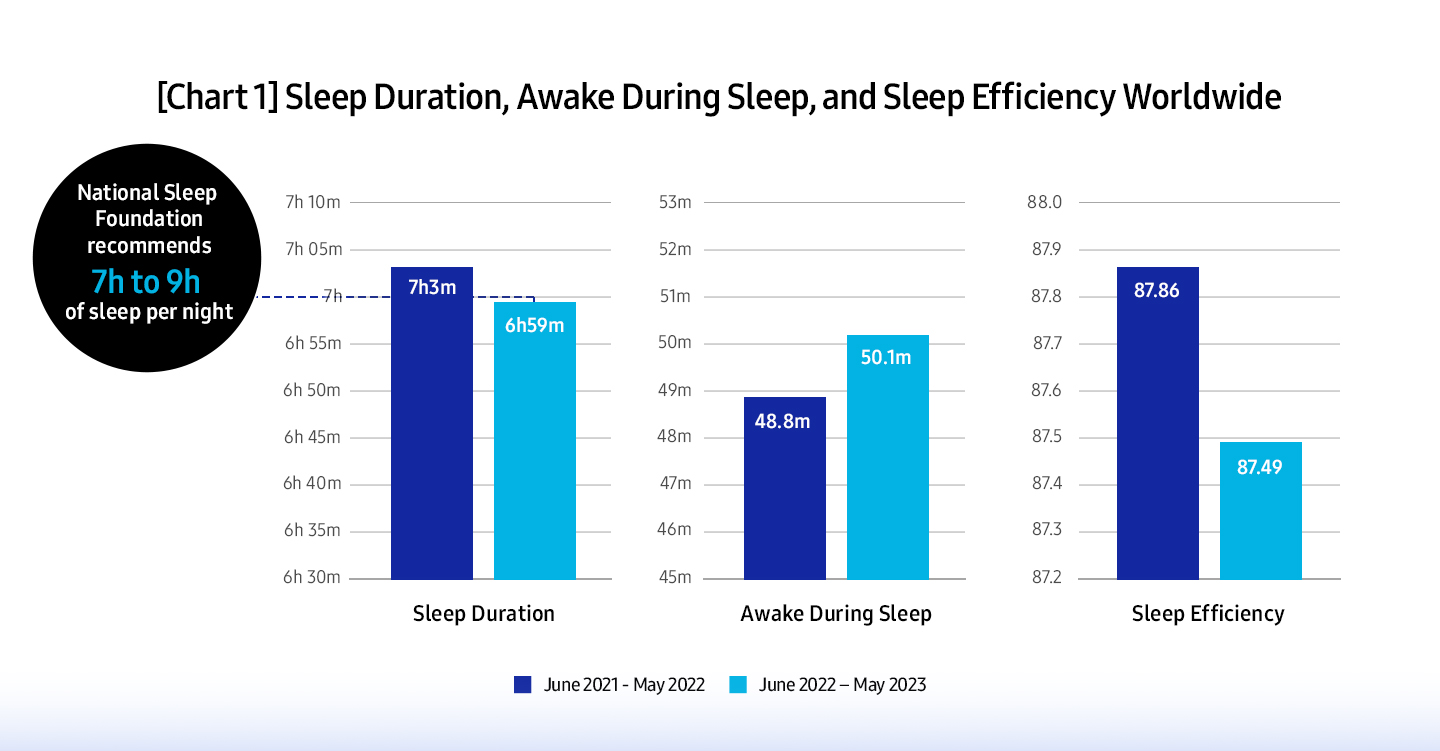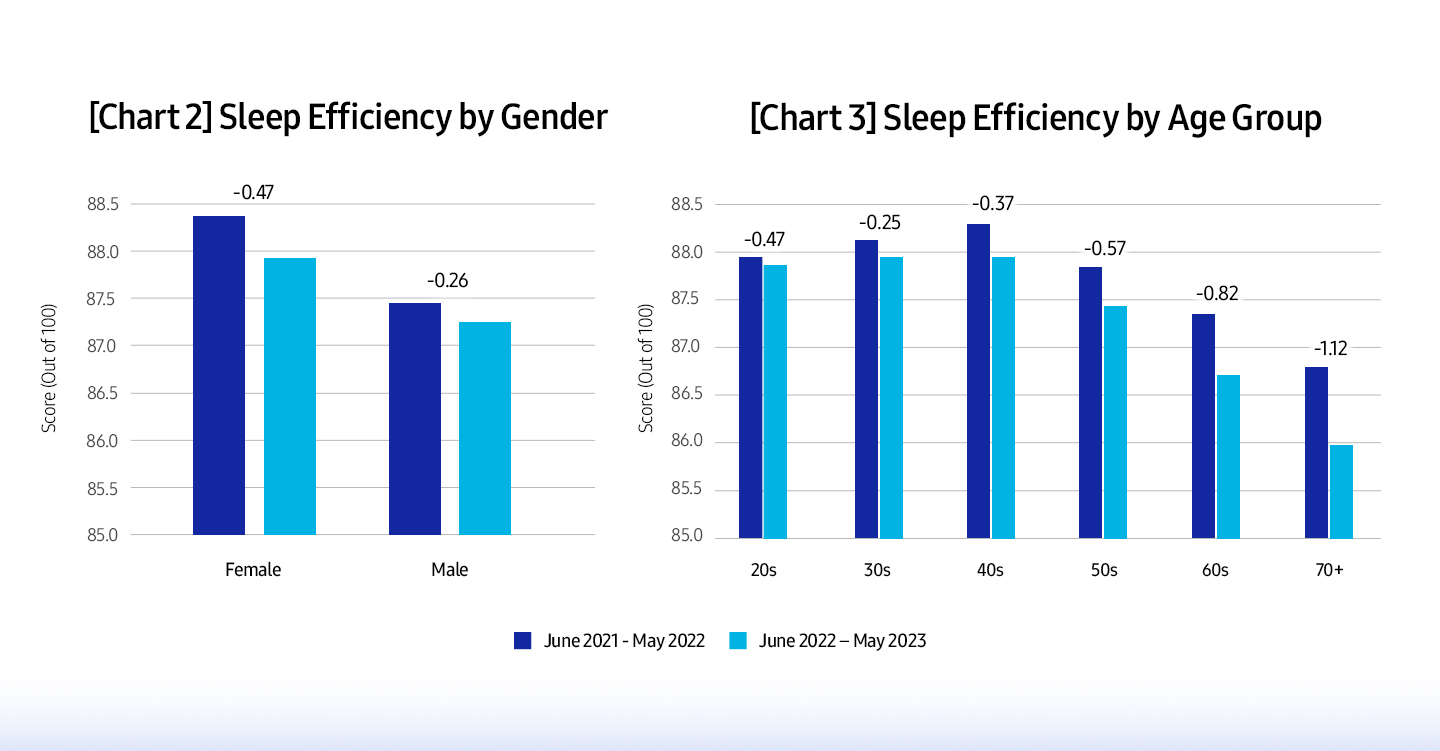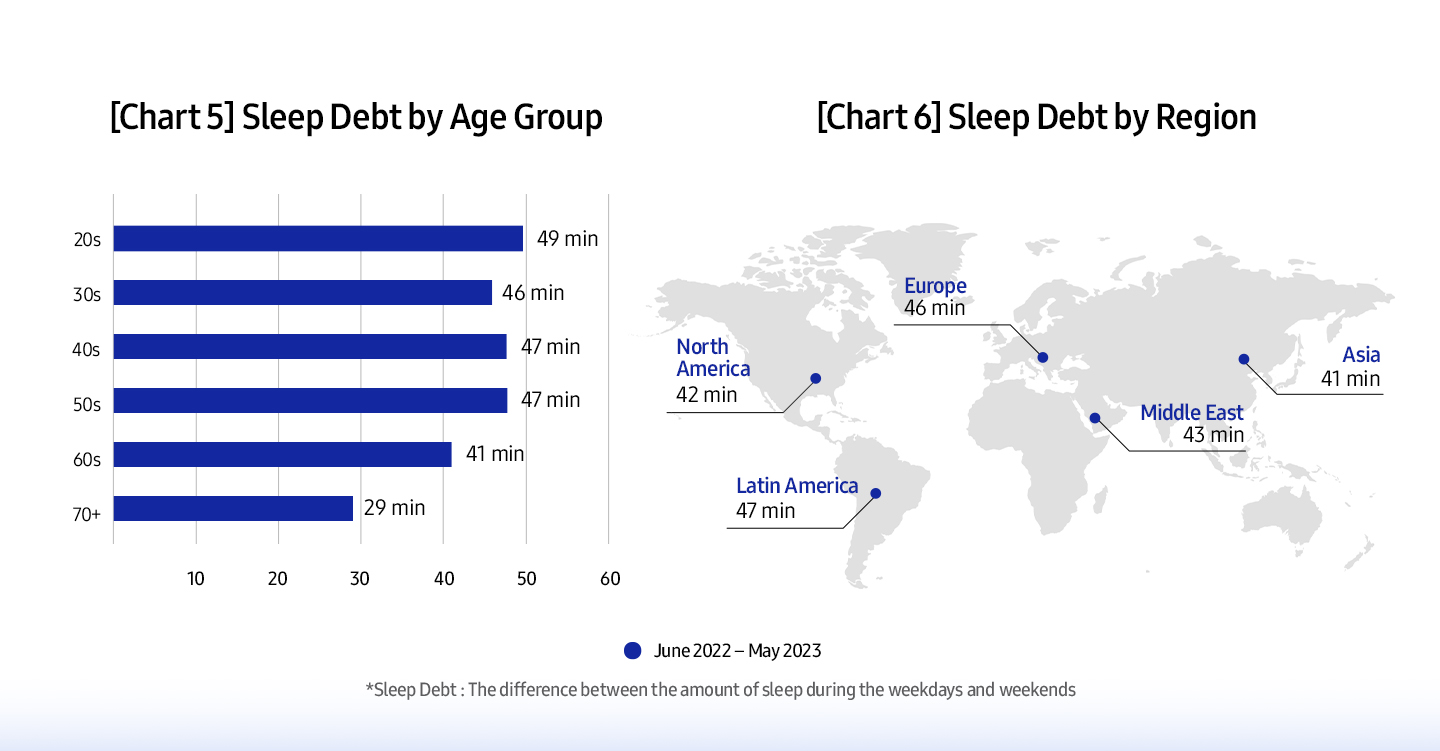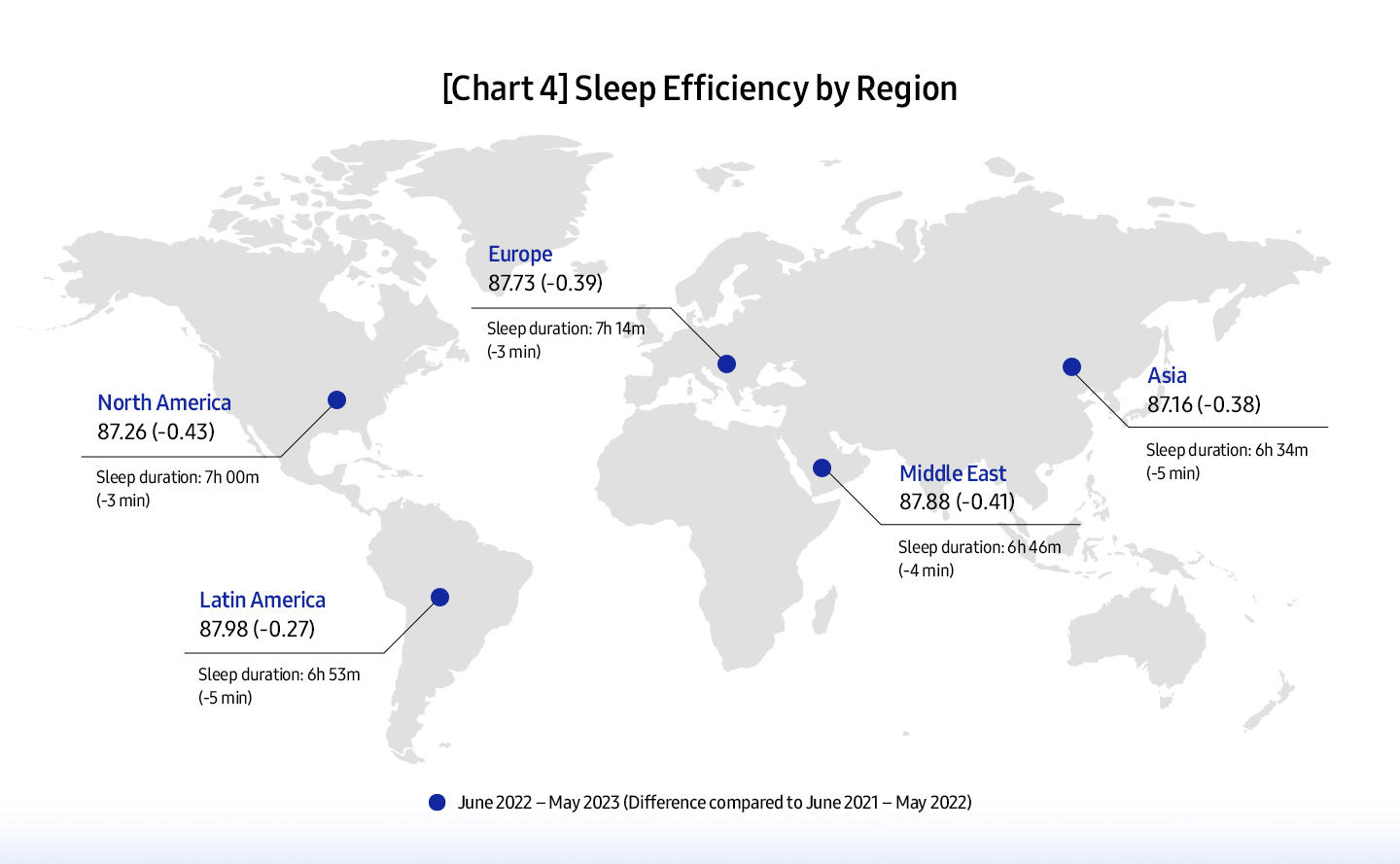Highlights
- Samsung Health study reveals global sleep duration has fallen below the essential 7-hour threshold.
- Sleep efficiency is declining worldwide, with North America witnessing the greatest decrease.
- Gender and age disparities exist in sleep efficiency, with females and older individuals affected the most.
Are we getting enough sleep? A question that often pops up in discussions about health and well-being.
Samsung aims to shed light on this question with one of the largest sleep health studies ever conducted.
Despite a marked increase in interest in sleep tracking, Samsung’s extensive research paints a grim picture: worldwide sleep quality is on the decline.
Declining Sleep Durations and Efficiency: A Global Concern

Samsung’s Health app data reveals a worrying trend: average sleep durations are falling below the essential 7-hour threshold, slipping from 7 hours and 3 minutes to just 6 hours and 59 minutes.
This decline is not restricted to any particular region or demographic, suggesting that it’s a global issue.
Sleep efficiency, calculated based on the ratio of actual sleep time to time spent in bed, is also waning.
North America takes the hit with the greatest decrease, while Asia fares better with the lowest decline in sleep efficiency.
The Gender and Age Disparities in Sleep Efficiency

While both males and females are witnessing a decline in sleep efficiency, it’s the women who have experienced the most significant decrease in the past year.
Age also seems to play a role in sleep efficiency, with older demographics showing a more pronounced decline.
Individuals aged over 70 experienced almost double the decline compared to those in their 20s.
Sleep Debt’s Impact on Younger Generations

Sleep debt, the disparity between weekday and weekend sleep, is another alarming aspect of global sleep health.
Samsung’s data indicates that those in their 20s have almost double the sleep debt compared to those in their 70s.
This inconsistency further contributes to the decline in overall sleep quality.
Regional Differences in Sleep Debt

By region, Asia had the shortest sleep debt, averaging at 41 minutes, whereas Latin America recorded the longest at 47 minutes.
On weekends, people globally catch up on lost sleep by sleeping an additional 44 minutes, on average.
FAQs
What does the Samsung Health study say about global sleep durations?
The study indicates that the average sleep duration worldwide has fallen below the recommended 7 hours, specifically to 6 hours and 59 minutes.
Is sleep efficiency a global issue?
Yes, the study reveals that sleep efficiency is declining across the globe. North America has experienced the greatest decrease, followed by Europe and other regions.
How does age affect sleep quality according to the study?
Older individuals, particularly those over 70, have seen a more significant decline in sleep efficiency compared to younger age groups.
What is sleep debt and who is most affected?
Sleep debt refers to the inconsistency between weekday and weekend sleep. It is highest among people in their 20s, who have nearly double the sleep debt compared to those in their 70s.
